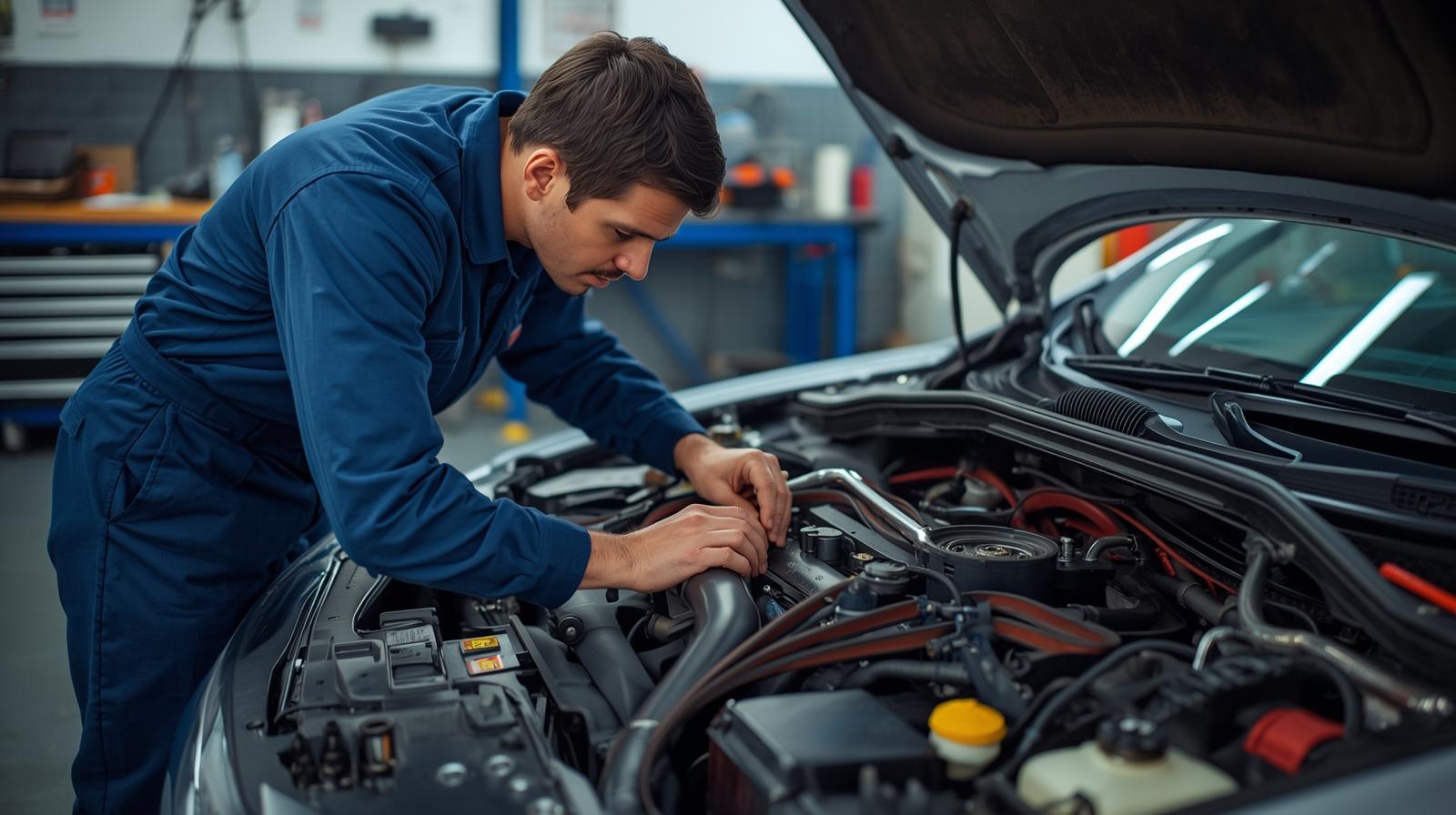Your car engine is the heart of your vehicle, and keeping it in good condition is essential for a smooth, reliable ride. Engine problems, if left unchecked, can lead to costly repairs and even complete engine failure. The good news is that many engine problems can be prevented with regular maintenance and careful attention to early signs of trouble. In this guide, we’ll discuss five of the most common car engine problems, explain how to identify them, and offer tips on how to avoid them before they lead to bigger issues.
1. Overheating Engine
What is it?
An overheating engine is one of the most common and potentially damaging problems a car can experience. When your engine temperature exceeds normal operating levels, it can cause severe damage to critical components, including the radiator, cylinder heads, and pistons.
Causes of Overheating:
- Low coolant levels or coolant leaks
- A malfunctioning thermostat
- Broken water pump
- Blocked or damaged radiator
How to Avoid Overheating:
- Check Coolant Levels Regularly: Ensure the coolant is at the proper level, and top it up if necessary. Always use the recommended type of coolant for your vehicle.
- Inspect the Radiator and Hoses: Look for any visible signs of damage, leaks, or blockages in the radiator and coolant hoses. Replace any worn-out hoses before they cause issues.
- Replace the Thermostat: The thermostat regulates the engine’s temperature. If it’s malfunctioning, it can cause overheating. Get it checked and replaced if needed.
Regular maintenance of your cooling system can significantly reduce the risk of engine overheating.
2. Oil Leaks
What is it?
Oil leaks are common in older vehicles and occur when engine oil escapes from the engine. Oil is essential for lubricating moving parts inside the engine, and without it, friction increases, causing wear and overheating.
Causes of Oil Leaks:
- Worn or damaged gaskets and seals
- Cracked oil pan
- Loose or damaged oil filter
- Old or deteriorated engine components
How to Avoid Oil Leaks:
- Regular Oil Changes: Make sure to change your engine oil and replace the oil filter according to your car’s maintenance schedule. This helps prevent the oil from becoming too thick or contaminated.
- Inspect Seals and Gaskets: Check the seals and gaskets around the engine to ensure they are in good condition. Replace any worn-out seals to prevent oil from leaking out.
- Monitor Oil Levels: Check your oil levels regularly, and top it off when necessary. If you notice a sudden drop in oil levels, it could indicate a leak.
Regular maintenance and vigilance can help prevent oil leaks before they lead to engine damage.
3. Timing Belt Failure
What is it?
The timing belt is a crucial part of your car’s engine that synchronizes the movement of the crankshaft and camshaft, ensuring the engine’s valves open and close at the correct times. If the timing belt fails, it can lead to severe engine damage.
Causes of Timing Belt Failure:
- Worn-out timing belt
- Lack of maintenance
- Tensioner or pulley failure
- Exposure to high heat or extreme conditions
How to Avoid Timing Belt Failure:
- Follow Manufacturer’s Replacement Schedule: Timing belts should be replaced at regular intervals as recommended by your car’s manufacturer, usually every 60,000 to 100,000 miles.
- Inspect for Wear: During routine maintenance, have the timing belt checked for any signs of wear, cracks, or fraying. Replace it immediately if you notice any issues.
- Avoid Overheating: Excessive heat can cause the timing belt to degrade faster. Ensure your engine’s cooling system is functioning correctly to prevent overheating.
Proper timing belt maintenance can prevent the risk of sudden failure, saving you from expensive repairs.
4. Spark Plug Problems
What is it?
Spark plugs are responsible for igniting the air-fuel mixture inside the engine’s combustion chamber. Faulty spark plugs can cause engine misfires, poor fuel efficiency, and a decrease in engine performance.
Causes of Spark Plug Problems:
- Worn or damaged spark plugs
- Fouled spark plugs due to carbon buildup
- Incorrect spark plug gaps
- Ignition coil failure
How to Avoid Spark Plug Problems:
- Replace Spark Plugs Regularly: Spark plugs should be replaced according to your car’s maintenance schedule, usually every 30,000 to 100,000 miles, depending on the type of spark plug.
- Check Spark Plug Condition: Regularly inspect the spark plugs for signs of wear, corrosion, or buildup. Clean or replace spark plugs if needed.
- Proper Gap Maintenance: Ensure the spark plug gap is set correctly. A gap that is too wide or narrow can cause engine misfires or poor performance.
Replacing spark plugs at the recommended intervals can prevent engine misfires and improve fuel efficiency.
5. Fuel Injector Problems
What is it?
Fuel injectors are responsible for delivering the correct amount of fuel into the engine’s combustion chamber. Over time, fuel injectors can become clogged or damaged, leading to poor fuel efficiency, rough idling, and engine misfires.
Causes of Fuel Injector Problems:
- Clogged or dirty fuel injectors
- Low-quality fuel
- Engine misfires or rough idle
- Worn-out fuel injector seals
How to Avoid Fuel Injector Problems:
- Use High-Quality Fuel: Always use high-quality fuel from reputable gas stations. Low-quality fuel can introduce contaminants that clog fuel injectors.
- Fuel Injector Cleaning: Periodically have your fuel injectors cleaned to prevent buildup of dirt and carbon deposits.
- Regular Fuel System Maintenance: Have your fuel system, including fuel filters and injectors, checked during regular maintenance to ensure optimal performance.
Proper care of your fuel injectors can help maintain smooth engine performance and prevent costly repairs.
Conclusion
Car engine problems can be frustrating, but many of these issues can be avoided with regular maintenance and proactive care. By addressing the common engine problems listed above and following the preventative tips, you can keep your engine running smoothly and avoid costly repairs.
Remember, it’s always better to catch potential problems early rather than waiting until they cause significant damage. Regular check-ups and maintenance are essential to prolong the life of your engine and keep your vehicle running at its best.
FAQ’s
How often should I change my car’s oil?
Most vehicles require an oil change every 3,000 to 5,000 miles, though some newer models may have extended intervals. Always follow your manufacturer’s recommendation for the best results.
Can I fix an engine overheating problem myself?
If your car is overheating, it’s best to seek professional help. Common causes include coolant leaks or a malfunctioning thermostat, which require a mechanic to fix.
How do I know if my timing belt is failing?
Symptoms of a failing timing belt include engine misfires, poor performance, and strange noises. Have it inspected regularly, and replace it according to your vehicle’s schedule.
Why does my car’s engine misfire?
Engine misfires can be caused by faulty spark plugs, fuel injectors, or ignition coils. Regular maintenance and timely replacement of parts can prevent misfires.
How can I prevent fuel injector problems?
To avoid fuel injector issues, use high-quality fuel, have your injectors cleaned periodically, and ensure your fuel system is regularly maintained.





